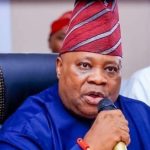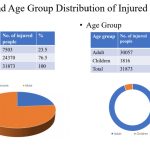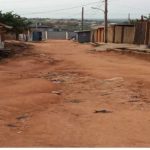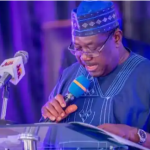By Ayinla Abdulbasit Olorunoje
Amidst the battle of climate and economic downturn, Nigerians gasp for survival after a year of Bola Tinubu’s (Nigeria President) administrative system, which has impounded numerous policies that cripples sustenance among Nigerians: the lives of the average Nigerians has been dubbed lower than what can be measured.
Instead of reinstating the old glory of economy, security, and monetary value among others, the Tinubu administration took a bold move, astonishingly, and implemented the Nigerian old national anthem, used after the country’s independence.
The decision, trending as a “mad idea” in bringing back the old, but now new national anthem that colonists crafted for us has sparked a range of reactions among Nigerians, with some expressing support for the move; while others have criticized it as a “misplaced priority”.
What about the one we have used before?
Since the inception of Bola Tinubu’s administration on 29th May 2023, many Nigerians have been at the top of their voices yelling out tons of complaints that the government should exonerate the hardship in the country; due to the high cost of living, high rate of kidnapping, terrorism, and rollercoastering of naira and dollar.
To many Nigerians, electing Bola Tinubu as the new president was the only alternative to absolve the economic hardship faced during the administration of General Muhammadu Buhari, and also the promises he made during his campaign.
Upon being sworn in as the President of the country, Bola Ahmad swung into action and announced the removal of fuel subsidy, an action that Nigerians are still battling to overcome, many Small and Medium-sized Enterprises (SME) owners are been grieved to square one, struggling to maintain their businesses due to their inability to afford the new expenses of life.
Recently, Nigeria has been facing a crisis of monumental proportions, the economy is in shambles, and the people are suffering as a result. And much of the blame can be laid at the feet of President Tinubu.
Under President Tinubu’s rule, the economy has tanked, inflation has soared, and unemployment rates are floating. The country is in the throes of a deep recession, and the government seems incapable of turning things around.
Are the people of Nigeria paying the price for President Tinubu’s mismanagement? The cost of living has become prohibitively expensive, and many are struggling to make ends meet.
Nigeria’s economy has faced significant challenges in recent years, including a decline in the GDP growth rate, high inflation rates, currency fluctuations, challenges in the power and energy sector, and many more.
Unfortunately, according to the World Food Programme, about 26.5 million people across Nigeria are projected to face acute hunger in 2024, an increase from the 18.6 million people who suffered hunger at the end of 2023.
Similarly, the Global Hunger Index, stated that Nigeria scored 28.3 in the 2023 Global Hunger Index, indicating that Nigerians have a serious level of hunger across the country.
Moreover, to document the situation of the country at the end of President Tinubu’s one year in office, Sahara Reporters, an online Newspaper surveyed on the 29th May 2024: the survey revealed that about 68% of the people living in the country are suffering.
Despite all this, the Nigerian President and Legislative arm of the government has no proactive measure than to change the National Anthem written by the nationalities of the country to the documented one by the British after Nigeria’s independence.
In a country where more than 50% of the population is ravaged by hunger, how are they to have some listening ears and attentive brains to master the new (old) anthem: Is the signing of the new (old) anthem a proactive measure?
It is high time for the Nigerian government to take some exonerating steps about the state of the country’s economy.
The people of Nigeria deserve better than the dismal economic prospects they currently face.













